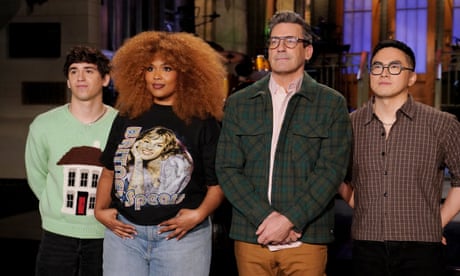The NEA in Crisis: What the Latest Grant Cuts Mean for the Arts in America

Arts organizations across the United States are facing major uncertainty following recent cuts to grants from the National Endowment for the Arts (NEA). The decision, which came swiftly after the Trump administration proposed the agency's elimination, raises urgent questions about the future of creative funding and cultural expression in America.
Understanding the NEA's Role in the Arts Community
The NEA has supported countless projects, artists, and communities since its founding in 1965. By awarding billions in grants, it has promoted diversity and innovation in the arts nationwide. Though it is one of the smallest federal agencies, its impact has been significant, reaching into every congressional district.
Recent NEA Grant Cuts: What Happened?
On May 3, 2025, hundreds of organizations received abrupt notices that their NEA grants were terminated. According to an NPR report, these emails arrived just hours after the White House proposed cutting the agency from next year’s federal budget. Well-known groups like the Berkeley Repertory Theater and Chicago’s Open Studio Project were among those affected. The administration's new funding priorities focus on projects supporting specific communities and initiatives, leaving many established arts projects without support.
Megan Wanlass of the Cornerstone Theater Company, whose $40,000 grant was withdrawn, expressed disappointment: their project focused on democracy and American independence, themes supposedly aligned with the new priorities. Many grantees describe feeling discouraged and singled out, worried about enduring impacts on their programs and communities.
Political Context and Community Reaction
The proposal to eliminate the NEA echoes previous efforts to reduce federal involvement in arts funding. The agency’s budget, already representing just 0.003% of total government spending, has long faced criticism from certain political leaders. Still, the NEA has survived past attempts thanks to broad bipartisan support.
The Guardian reports that Democratic politicians and arts unions have condemned the cuts, calling them damaging to public access and creative expression. For smaller organizations, NEA grants serve as crucial endorsements, helping them secure further funding from private donors.
Kate Fowler from Studio Two Three, a Richmond arts space that lost a $30,000 grant, captured the frustration felt by many: “The strategy to divest from community organizations isn’t incidental. These are places where communities gather, dream, and create change.”
The Broader Impact on Artistic Life
Without NEA funding, many groups risk reducing their outreach, canceling productions, or even shutting down. The effect is especially sharp in rural or underserved areas, where alternative funding sources are scarce. Artists and educators across the country are now left to adapt, seek new funding avenues, and rally support for the arts.
What Comes Next for the NEA and American Arts?
Eliminating the NEA would require an act of Congress, and many advocates are determined to prevent it. Leaders like Erin Harkey of Americans for the Arts and Al Vincent, Jr. from Actors’ Equity Association are urging both policymakers and the public to defend federal arts funding. Their message is clear: the NEA is vital for fostering creativity, preserving heritage, and strengthening communities.
For further details and diverse perspectives, you can read NPR’s full coverage of the NEA grant cuts and The Guardian’s analysis of the political and cultural fallout.
Conclusion
The future of the NEA—and the broader ecosystem of arts in the United States—remains in jeopardy. As organizations and individuals respond to grant cuts, ongoing advocacy and public awareness are more important than ever. By staying informed and supporting local arts, everyone can play a role in shaping what comes next for American creativity.